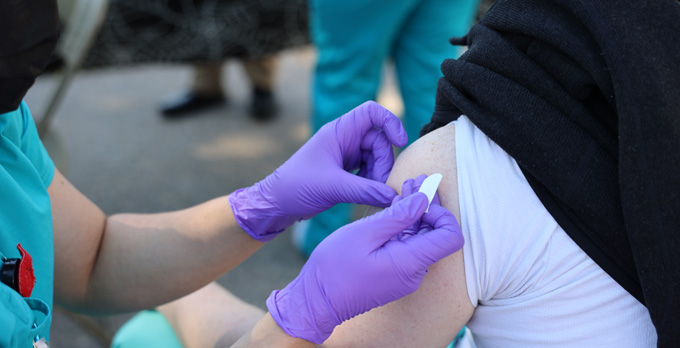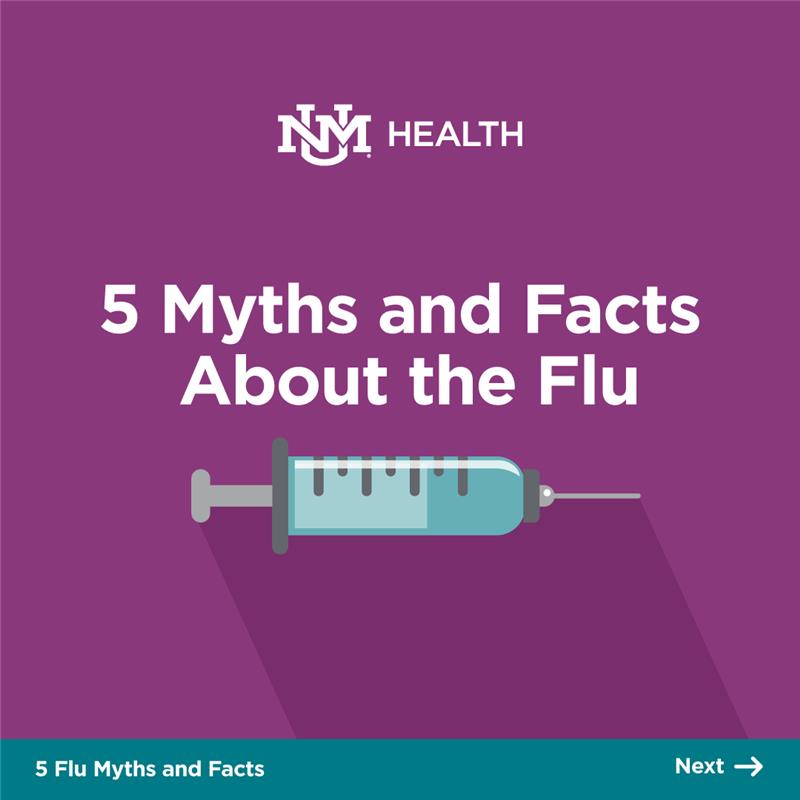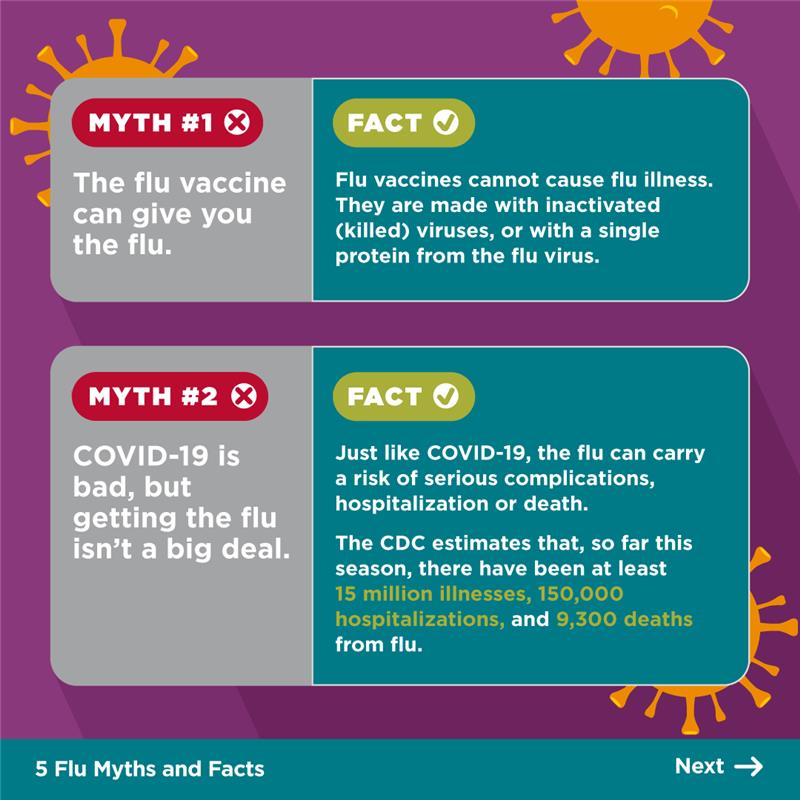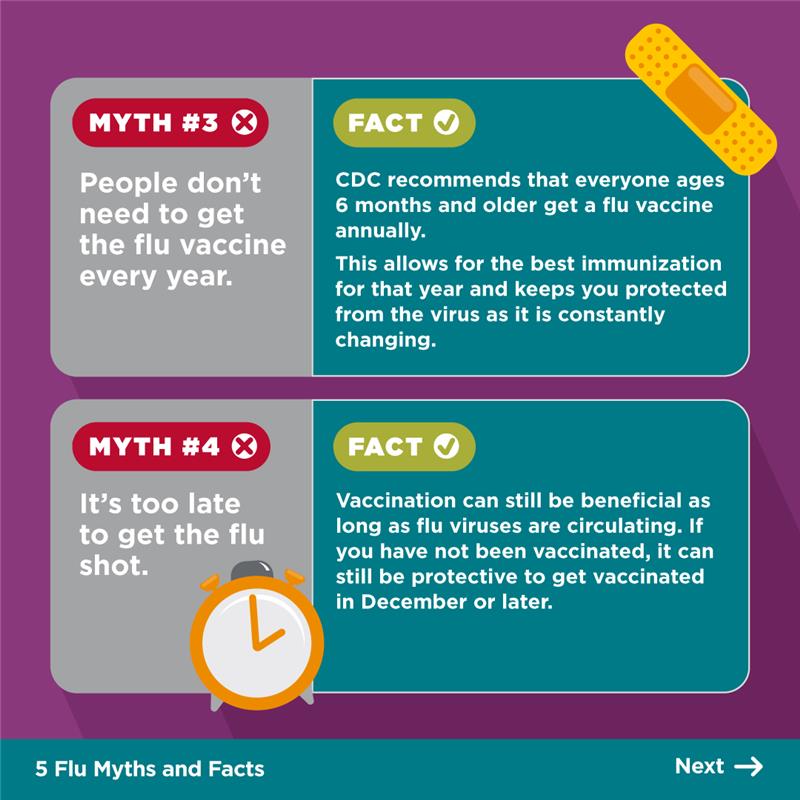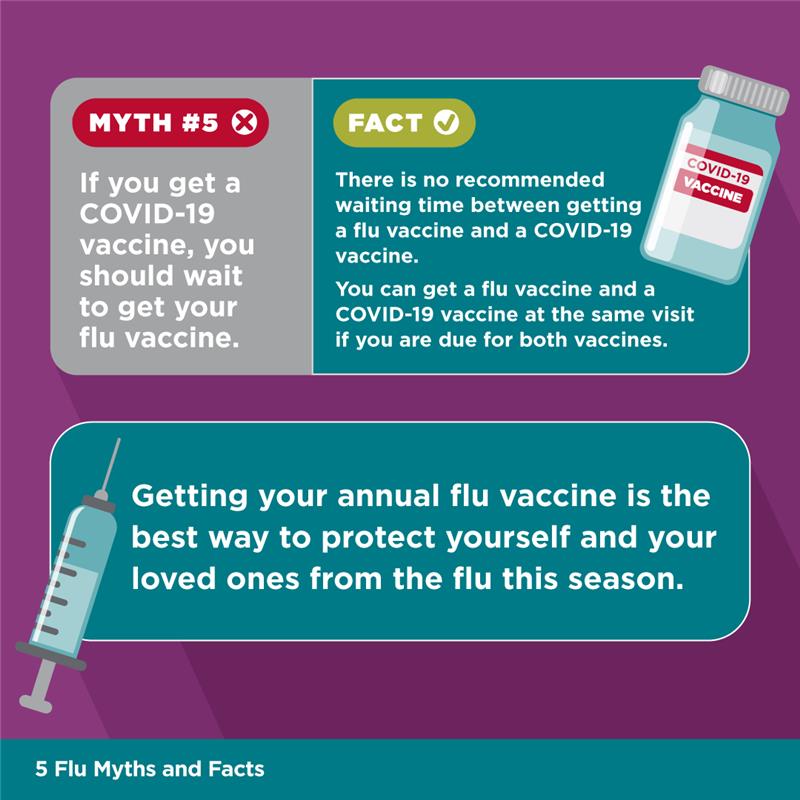Flu season is officially upon us, according to the New Mexico Department of Health (NMDOH). COVID, and respiratory syncytial virus (RSV) infections are also increasing in New Mexico. That is why The University of New Mexico Health System has partnered with NMDOH to remind people, “Don’t Wait, Vaccinate.” The goal is to stress the importance of getting respiratory vaccines and also make it easier to find places to get the necessary shots.
Meghan Brett, MD, is the Hospital Epidemiologist at UNM Hospital and associate professor of adult infectious diseases in the UNM School of Medicine. She said what works to protect us against flu and COVID also works for other respiratory viruses.
“So, how to best take care of yourself is get vaccinated,” Brett said. “That helps reduce your risk for infections, including severe infections. I would also say wash your hands, and if you are sick, please wear a mask. Consider staying home as well, so you don't spread germs to other people.”

It is never too late to get the flu shot or the COVID vaccine. I think some protection is better than none.
Step 1: Get Scheduled
Health protection is only a few quick clicks away through NMDOH’s website, VaccineNM.org. This is the first fall and winter virus season where vaccines are available for all three viruses. Watch the video below to see how you can schedule an appointment for any or all respiratory illnesses ahead of the holidays.
Vaccine.gov is another resource for learning where flu and COVID-19 vaccines are available.
Step 2: Review the Latest Info
Here’s what you need to know about vaccinations for the most common respiratory illnesses floating around right now:
Flu
- The annual flu shot protects against influenza and reduces the risk for infection by 40-60 percent.
- It takes two weeks to develop protection after vaccination.
- If you have a severe egg allergy, you no longer need to receive your vaccine in a monitored inpatient or outpatient medical setting.
COVID
- The updated COVID vaccine is effective against new circulating strains of the virus.
- The Centers for Disease Control and Prevention (CDC) recommends everyone six months and older get the vaccine. It is most important for people if you are immunocompromised, have not had a recent infection, are 65 years or older or have underlying medical problems like diabetes, lung disease, or heart disease.
RSV
- Arexvy (GSK) and Abrysvo (Pfizer) are RSV vaccines now available for adults, ages 60 and older. Discuss with your doctor or provider if this vaccine is appropriate for you.
- The U.S. Food and Drug Administration (FDA) approved Abrysvo for expectant mothers who are 32-36 weeks pregnant, to pass antibodies to the fetus and protect against RSV infections in newborns.
- The FDA also approved a new drug (monoclonal antibody infusion) called Beyfortus (Nirsevimab). This will soon be available to prevent RSV in infants younger than eight months of age and high-risk children up to 19 months of age. There will be a limited supply of this drug during this respiratory viral season. Ask your pediatrician or primary care doctor about whether or not this treatment is right for your child.
- Read more RSV updates here.
Step 3: Stay in the Loop
For more facts and information on the flu, COVID and RSV, follow our UNM Hospital social media pages.
You can also read more from the recent update on fall and winter respiratory illnesses from UNM Health, NMDOH, Presbyterian Healthcare Services, Lovelace Health System and Christus St. Vincent.
